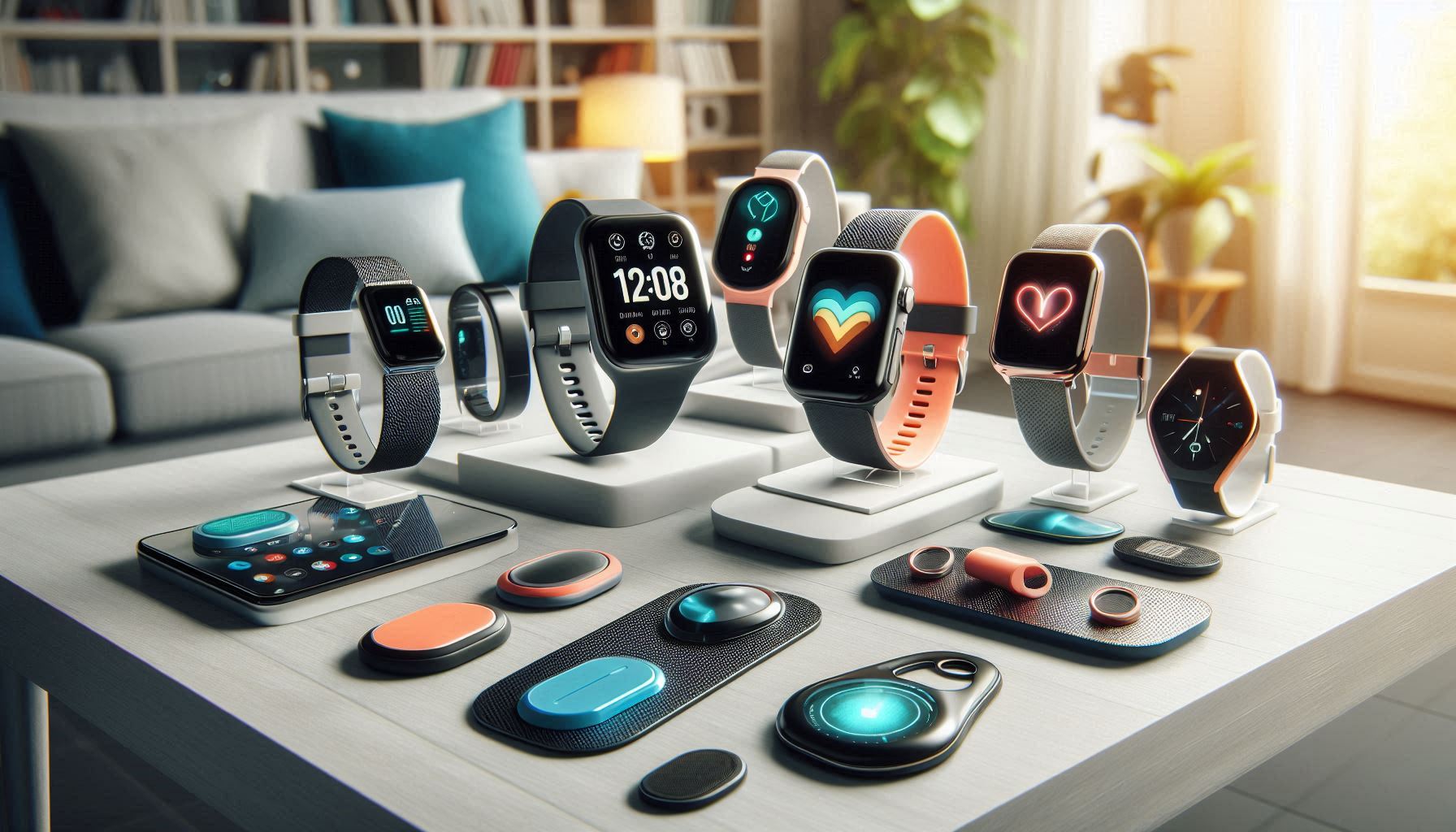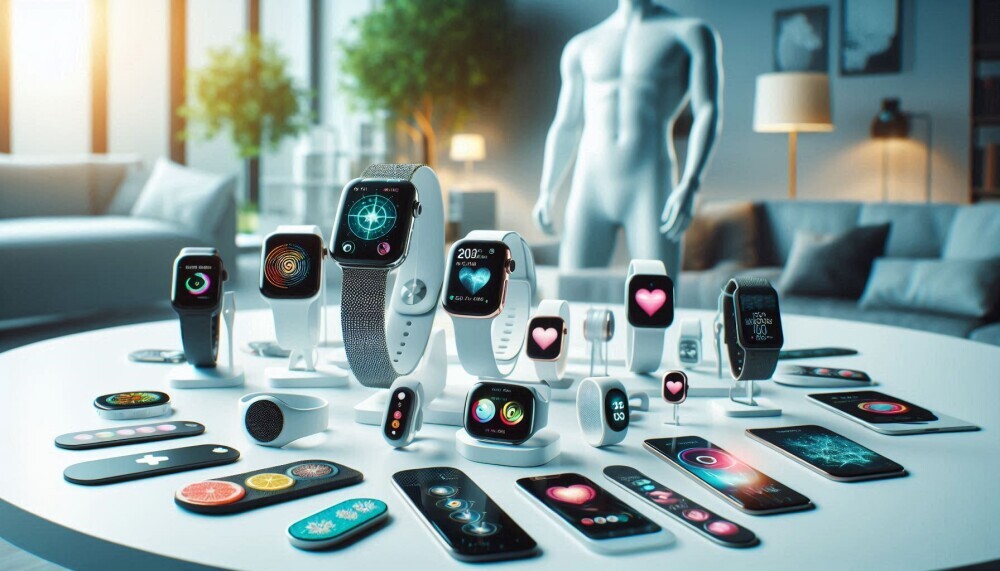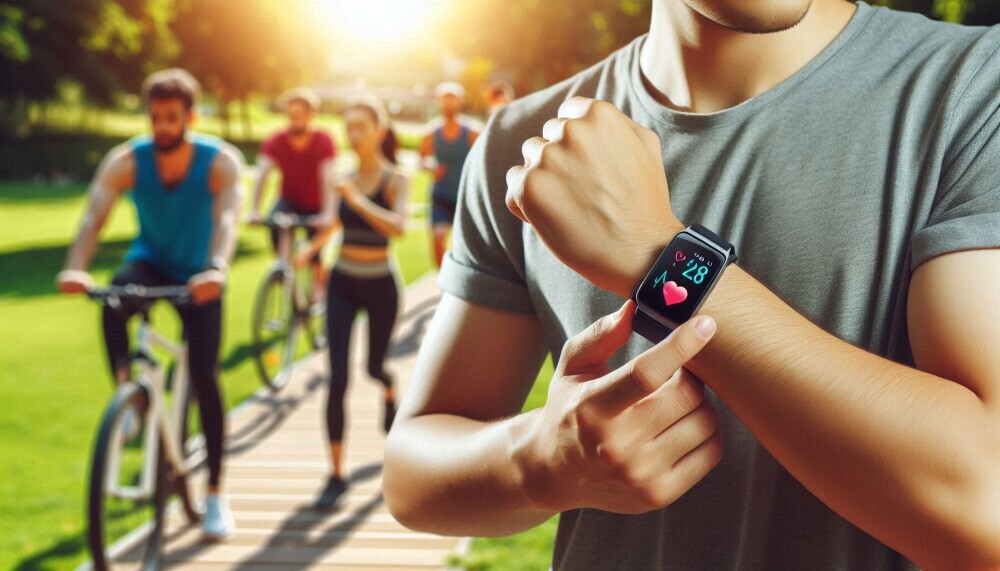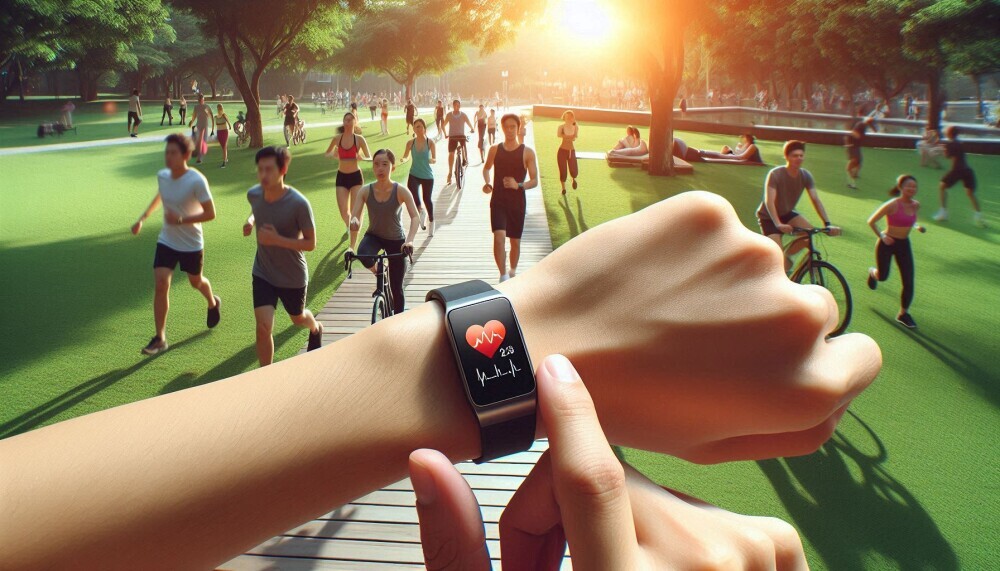A huge, warm welcome to Vertevia. In this article, we are going to be taking a look at the Ultimate Buyer’s Guide: Choosing The Right Wearable For Your Lifestyle. Are you a wearable health tech device user? Did you find it confusing when trying to choose wearable that suits your own personal lifestyle? Please feel free to drop us a comment in the comments section at the bottom of the page.
Introduction
In today’s rapidly moving digital age, wearable technology has seamlessly integrated into our daily routines, offering convenience, real time data, and powerful health insights. From counting steps and tracking sleep to monitoring stress and ECG readings, these compact devices do far more than tell time. They become lifestyle companions. With countless options on the market, choosing the right wearable for your unique needs can be overwhelming.
Whether you’re a professional balancing productivity and health, a fitness enthusiast chasing peak performance, or someone simply wanting to live a healthier life, the right wearable health tech can make all the difference. This comprehensive buyer’s guide will walk you through the most important factors to consider, highlight top categories of devices, and help match the best wearable to your goals, preferences, and lifestyle.
Why Wearables Matter for Your Lifestyle
Wearables are more than gadgets. They’re powerful tools for personal health and wellness. They enable users to stay on top of their physical activities, monitor mental well being, track vital signs, and even detect early health warnings. The beauty of wearable tech is its ability to fit seamlessly into your daily life, offering insights without disruption.
People of all ages and fitness levels benefit from these devices. Busy professionals can reduce stress and improve productivity through mindfulness reminders, while older users may find features like fall detection and heart monitoring essential. From calorie tracking to meditation guidance, wearables offer unique support tailored to individual lifestyles.
Key Features to Consider When Choosing a Wearable
Purpose and Lifestyle Fit
- Define what you need. Fitness tracking, health monitoring, productivity boosts, etc.
- Consider whether you’re a runner, swimmer, cyclist, yoga enthusiast, or office worker.
Health Tracking Capabilities
- Features like heart rate monitoring, blood oxygen (SpO2), ECG, stress detection, and sleep tracking are now standard.
- Specialized options include skin temperature, hydration levels, and menstrual tracking.
Battery Life
- Look for devices that match your lifestyle. Frequent travellers or hikers may need a week long battery.
- Some smartwatches require daily charging, while fitness bands and rings may last up to 7 to 14 days.
Design and Comfort
- Slim, stylish designs are essential for all day wear.
- Consider water resistance if you’re active or enjoy water based sports.
App Ecosystem & Compatibility
- Ensure compatibility with your smartphone (iOS or Android).
- Look for robust apps with user friendly dashboards, community support, and data sync options.
Price and Value
- Set a budget and compare features within your price range.
- Evaluate if a subscription is required (e.g., Fitbit Premium, WHOOP).
Types of Wearables to Match Different Lifestyles
Smartwatches (e.g., Apple Watch, Samsung Galaxy Watch)
- Best for: Everyday users who want a mix of fitness and productivity features.
- Pros: All in one device, extensive app support, smart notifications.
- Cons: Shorter battery life, often requires daily charging.
Fitness Trackers (e.g., Fitbit Charge, Garmin Vivosmart)
- Best for: Fitness enthusiasts, beginners to intermediate athletes.
- Pros: Lightweight, affordable, long battery life.
- Cons: Fewer productivity features, limited third party apps.
Smart Rings (e.g., Oura Ring, Ultrahuman Ring AIR)
- Best for: Users who want minimalism and in depth health tracking.
- Pros: Discreet, highly accurate sleep and recovery insights.
- Cons: No screen, not ideal for active workout tracking.
ECG Wearables (e.g., Withings ScanWatch, Fitbit Sense 2)
- Best for: Health conscious individuals with heart health concerns.
- Pros: Medical grade ECG functionality, continuous monitoring.
- Cons: Often pricier and may require health insurance or medical consultation.
Hybrid Wearables (e.g., Withings Steel HR, Garmin Lily)
- Best for: Users who want style without sacrificing function.
- Pros: Classic look with smart features, good battery life.
- Cons: Limited screen functionality and smart features.
Recommended Wearables by Lifestyle Category
1. Fitness Focused
- Garmin Forerunner 265 Price– £429.99
- Pros: Accurate GPS, advanced fitness metrics, good battery.
- Cons: Expensive, complex interface.
- Fitbit Charge 6 – £139.99
- Pros: Budget friendly, good sleep and stress tracking
- Cons: Limited third party apps.
2. Wellness Oriented
- Oura Ring Gen 3 – £299 plus optional subscription
- Pros: In depth sleep and recovery tracking, sleek design.
- Cons: No display. Pricey!
- WHOOP 4.0 – £24.99 hardware plus £16 per month subscription
- Pros: Continuous strain and recovery insights.
- Cons: Requires monthly subscription, no screen.
3. Lifestyle & Productivity
- Apple Watch Series 9 – £399
- Pros: Seamless iOS integration, strong health features.
- Cons: Battery life, iPhone only.
- Samsung Galaxy Watch6 – £319
- Pros: Great for Android users, strong fitness tracking.
- Cons: Short battery life.
6 Frequently Asked Questions (FAQs)
- Are wearables safe to wear all day and night?
Yes, wearables are designed for continuous use and use low power signals. However, if you feel skin irritation, take breaks or adjust the strap. - Do I need a subscription to access full features?
Some devices, like WHOOP and Fitbit Premium, require subscriptions for advanced metrics. Check before purchasing. - Which wearable is best for heart health monitoring?
Look for devices with ECG functionality like Apple Watch, Fitbit Sense, or Withings ScanWatch. - How accurate are wearable fitness trackers?
Most wearables are accurate for general use, though metrics like calories or steps may vary slightly. Sleep and heart rate tend to be more reliable. - Can I wear my fitness tracker while swimming?
Yes, many wearables are water resistant or waterproof. Check the product rating (e.g., 5ATM, IP68). - Which wearable is best for minimalists?
Smart rings like Oura or Ultrahuman Ring AIR are ideal for users who want health tracking without wearing a screen.
How to Get the Most from Your Wearable
- Set Clear Goals: Use the companion app to set daily activity, sleep, or mindfulness targets.
- Wear it Consistently: The more data you collect, the better the device can personalize recommendations.
- Sync & Review Regularly: Analyse your trends weekly to make informed health decisions.
- Utilize All Features: Explore less obvious functions like guided breathing, menstrual tracking, or stress management.
- Update Firmware: Keep your wearable and app updated for the latest performance improvements and features.
Conclusion
With so many options on the market, choosing the right wearable depends on your specific lifestyle, goals, and daily routines. Whether you want an all in one smartwatch, a fitness focused band, or a discreet smart ring, there’s something tailored for every user. This guide aims to eliminate confusion by helping you match the right product to your needs.
Remember, the best wearable is the one you’ll use consistently and that integrates seamlessly into your life. Prioritize comfort, compatibility, and the features you’ll use most. With the right tech on your wrist (or finger), you can transform your approach to health, wellness, and productivity every day.
Our Thanks!
We would like to offer our sincere thanks to you for taking time to read this article on the Ultimate Buyer’s Guide: Choosing The Right Wearable For Your Lifestyle. We hope that you have found it helpful with your search for suitable wearable health tech. If you would like some further reading, take a look at our blog? There are plenty of really helpful and informative articles on a range of wearable health tech topics. You might like our related article which is titled Top 5 Wearable Gadgets Every Fitness Enthusiast Should Own.
Please let us know in the comments which type of wearable health tech device you are currently using or plan to buy in the future!
**Here is a bit of transparency. Our website www.vertevia.com does contain affiliate links and Amazon links. So, if you did make a purchase through the website, we may receive a small commission. This is at no extra cost to you whatsoever. It’s just a way for you to support us as we continue to bring you top quality content**
All the best!
Eamon







